|
Books Should Be Free Loyal Books Free Public Domain Audiobooks & eBook Downloads |
|
|
Books Should Be Free Loyal Books Free Public Domain Audiobooks & eBook Downloads |
|
Non-fiction |
|---|
|
Book type:
Sort by:
View by:
|
By: H. G. Wells (1866-1946) | |
|---|---|
 God, the Invisible King
God, the Invisible King
Wells wrote in his book God the Invisible King that his idea of God did not draw upon the traditional religions of the world: "This book sets out as forcibly and exactly as possible the religious belief of the writer. [Which] is a profound belief in a personal and intimate God." Later in the work he aligns himself with a "renascent or modern religion ... neither atheist nor Buddhist nor Mohammedan nor Christian ... [that] he has found growing up in himself." | |
By: John Foxe | |
|---|---|
 Foxe's Book of Martyrs, A History of the Lives
Foxe's Book of Martyrs, A History of the Lives
The Book of Martyrs, by John Foxe, is an English Protestant account of the persecutions of Protestants, many of whom had died for their beliefs within the decade immediately preceding its first publication. It was first published by John Day, in 1563. Lavishly illustrated with many woodcuts, it was the largest publishing project undertaken in Britain up to that time. Commonly known as, “Foxe’s Book of Martyrs”, the work’s full title begins with “Actes and Monuments of these Latter and Perillous Days, Touching Matters of the Church... | |
By: Clarence Edwords (b. 1856) | |
|---|---|
 Bohemian San Francisco
Bohemian San Francisco
While describing his dining experiences throughout “Bohemian San Francisco,” Clarence Edwords paints an historic panorama of California cuisine with all its cosmopolitan influences. Best of all, he offers tantalizing recipes culled from conversations with the master chefs of 1914 in “The City by the Bay.” | |
By: Theodore Roosevelt | |
|---|---|
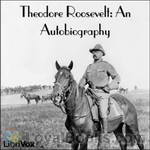 Theodore Roosevelt: An Autobiography
Theodore Roosevelt: An Autobiography
In his vital, illustrative and dynamic autobiography, Theodore Roosevelt let us into the life that formed one of the greatest and outspoken presidents in American history. Not only are we privy to the formation of his political ideals, but also to his love of the frontier and the great outdoors. | |
 Through the Brazilian Wilderness
Through the Brazilian Wilderness
Roosevelt’s popular book Through the Brazilian Wilderness describes his expedition into the Brazilian jungle in 1913 as a member of the Roosevelt-Rondon Scientific Expedition co-named after its leader, Brazilian explorer Cândido Rondon. The book describes all of the scientific discovery, scenic tropical vistas and exotic flora, fauna and wild life experienced on the expedition. One goal of the expedition was to find the headwaters of the Rio da Duvida, the River of Doubt, and trace it north to the Madeira and thence to the Amazon River... | |
By: Helen Hunt Jackson (1830-1885) | |
|---|---|
 Bits About Home Matters
Bits About Home Matters
This book is a collection of short observations by Helen Hunt Jackson, several with children and parenting as the subject matter. | |
By: Harriet Jacobs (1813-1897) | |
|---|---|
 Incidents in the Life of a Slave Girl, Written by Herself
Incidents in the Life of a Slave Girl, Written by Herself
Born in slavery, but being fortunate enough to be owned by a benevolent mistress, her life takes a tragic turn when her parents and her benefactor die. The new heir to the property (and slaves) is a cruel and lewd man who begins to make inappropriate advances to the lovely young slave-girl. In a bid to escape, she becomes entangled in a relationship with a neighboring landowner who promises a better life, and she even has two children. However, things become worse for her when her cruel owner decides to punish her by sending her and her children to a distant cotton plantation to be “broken in... | |
By: W. Somerset Maugham (1874-1965) | |
|---|---|
 On a Chinese Screen
On a Chinese Screen
This is a non-fiction collection of Maugham's observations of life in Asia in the early 20th Century. | |
By: Mary Harris Jones (1830 or 1837-1930) | |
|---|---|
 The Autobiography of Mother Jones
The Autobiography of Mother Jones
Mother Jones (Mary Harris Jones) was a legendary labor organizer. She was a founding member of the International Workers of the World (the IWW, or the Wobblies), and was active in the United Mine Workers and the Socialist Party of America. | |
By: Irwin S. Cobb (1876-1944) | |
|---|---|
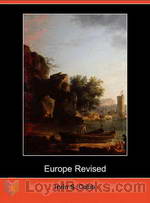 Europe Revised
Europe Revised
Irwin Cobb’s humorous Europe Revised is a travelogue and comedy almost in the style of Mark Twain. The dedication says it best, “To My Small DaughterWho bade me shed a tear at the tomb of Napoleon, which I was very glad to do, because when I got there my feet certainly were hurting me.” | |
By: William James (1842-1910) | |
|---|---|
 Essays in Radical Empiricism
Essays in Radical Empiricism
William James (1842 – 1910) was a pioneering American psychologist and philosopher. He wrote influential books on the young science of psychology, educational psychology, psychology of religious experience and mysticism, and the philosophies of pragmatism and Radical Empiricism. Essays in Radical Empiricism is a collection edited and published posthumously by his colleague and biographer Ralph Barton Perry in 1912. It was assembled from a collection of reprinted journal articles published from 1904–1905 which James had deposited in August 1906 at Harvard University, for supplemental use by his students. | |
 Varieties of Religious Experience
Varieties of Religious Experience
The Varieties of Religious Experience: A Study in Human Nature is a book by the Harvard psychologist and philosopher William James that comprises his edited Gifford Lectures on "Natural Theology" delivered at the University of Edinburgh in Scotland between 1901 and 1902. These lectures concerned the nature of religion and the neglect of science, in James' view, in the academic study of religion. Soon after its publication, the book found its way into the canon of psychology and philosophy, and has remained in print for over a century. | |
 The Moral Equivalent of War
The Moral Equivalent of War
The Moral Equivalent of War, the last public utterance of William James, is significant as expressing the opinions of a practical psychologist on a question of growing popular interest. For the past fifteen years the movement for promoting international peace has been enlisting the support of organizations and individuals the world over. That this is a question on which much may be said for the opposition, James, though a pacificist, admits with his usual fair-mindedness, pointing out that militarism... | |
 Pragmatism
Pragmatism
'Pragmatism' contains a series of public lectures held by William James in Boston 1906–7. James provides a popularizing outline of his view of philosophical pragmatism while making highly rhetorical and entertaining lashes towards rationalism and other competing schools of thought. James is especially concerned with the pragmatic view of truth. True beliefs should be defined as, according to James, beliefs that can successfully assist people in their everday life. This is claimed to not be relativism... | |
By: Harry Houdini (1874-1926) | |
|---|---|
 The Right Way to Do Wrong
The Right Way to Do Wrong
Harry Houdini, master illusionist and contortionist, unmasks the various ways that criminals take advantage of their victims. | |
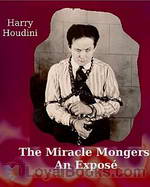 The Miracle Mongers, an Exposé,
The Miracle Mongers, an Exposé,
“A complete exposé of the modus operandi of fire eaters, heat resisters, poison eaters, venomous reptile defiers, sword swallowers, human ostriches, strong men, etc.”, [by Harry Houdini, from the subtitle]. | |
By: Vladimir Ilyich Lenin (1870-1924) | |
|---|---|
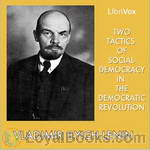 Two Tactics of Social-Democracy in the Democratic Revolution
Two Tactics of Social-Democracy in the Democratic Revolution
In the heat of the failed 1905 revolution in Russia, Lenin here contrasts the precision of the Bolshevik political program and tactics with various inconsistent and servile factions within the Russian Social-Democratic Labor Party. | |
By: M. M. Mangasarian (1859-1943) | |
|---|---|
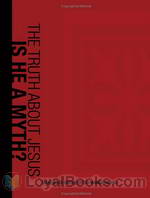 The Truth About Jesus. Is He a Myth?
The Truth About Jesus. Is He a Myth?
The following work offers in book form the series of studies on the question of the historicity of Jesus, presented from time to time before the Independent Religious Society in Orchestra Hall, Chicago, 1909. No effort has been made to change the manner of the spoken, into the more regular form of the written, word. | |
By: Lady Lucie Duff-Gordon (1821-1869) | |
|---|---|
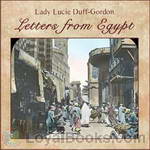 Letters from Egypt
Letters from Egypt
As a girl, Lady Duff-Gordon was noted both for her beauty and intelligence. As an author, she is most famous for this collection of letters from Egypt. Lady Duff-Gordon had tuberculosis, and went to Egypt for her health. This collection of her personal letters to her mother and her husband. By all accounts everyone loved her, and the letters are very personal in style and content. The letters are as much an introduction to her person as a record of her life on the Upper Nile. | |
By: J. Arthur Thomson (1861-1933) | |
|---|---|
 The Outline of Science
The Outline of Science
The Outline of Science, Volume 1 was written specifically with the man-on-the-street in mind as the target audience. Covering scientific subjects ranging from astronomy to biology to elementary physics in clear, concise and easily understood prose, this popular science work is largely as relevant today as when first published in 1922. Special emphasis is given to the principles of biological adaptation and evolution, especially how they relate to the rise of the human species from lower orders. Also included are the basics of the (then) fairly new concept of relativity and its impact on emerging scientific theories... | |
By: Herbert Allen Giles (1845-1935) | |
|---|---|
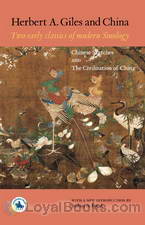 China and the Chinese
China and the Chinese
Herbert Allen Giles (1845-1935) spent several years as a diplomat in China and in 1897 was appointed Cambridge University’s second professor of Chinese. His published works cover Chinese language and literature, history and philosophy. This series of lectures, published as “China and the Chinese”, was given at Columbia University in 1902, to mark the establishment of a Chinese professorship there. The lectures were not intended for the specialist, more to urge a wider and more systematic study of China and its culture, and to encourage new students into the field... | |
By: Evelyn Underhill (1875-1941) | |
|---|---|
 Mysticism: A Study in Nature and Development of Spiritual Consciousness
Mysticism: A Study in Nature and Development of Spiritual Consciousness
The book provides an introduction to the subject of mysticism, presenting it from the point of view of metaphysics, psychology, and symbolism. It examines the different stages of development a mystic typically experiences. | |
 The Life of the Spirit and the Life of Today
The Life of the Spirit and the Life of Today
Underhill emphasizes the practical, here-and-now nature of spiritual life. She argues that spirituality is a genuine and abiding human fact, and that any complete description of human life must find room for the spiritual factor, and for the religious life in which it finds expression. | |
By: Julian of Norwich (c. November 8, 1342 - c. 1416) | |
|---|---|
 Revelations of Divine Love
Revelations of Divine Love
Julian of Norwich (c. November 8, 1342 – c. 1416) is considered to be one of the greatest English mystics. Little is known of her life aside from her writings. Even her name is uncertain, the name “Julian” coming from the Church of St Julian in Norwich, where she occupied a cell adjoining the church as an anchoress. At the age of thirty, suffering from a severe illness and believing she was on her deathbed, Julian had a series of intense visions. (They ended by the time she overcame her illness on May 13, 1373)... | |
By: Friedrich Schiller | |
|---|---|
 The Thirty Years War
The Thirty Years War
The History of the Thirty Years War is a five volume work, which followed his very successful History of the Revolt of the Netherlands. Written for a wider audience than Revolt, it is a vivid history, colored by Schiller’s own interest in the question of human freedom and his rationalist optimism. Volume 1 covers the background of the war, through the Battle of Prague in late 1620. (Introduction by Alan Winterrowd) | |
By: Mabel Hale | |
|---|---|
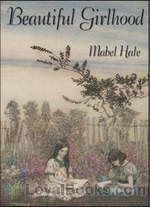 Beautiful Girlhood
Beautiful Girlhood
The transitioning years between girlhood and womanhood are an exciting time for a girl, as well as tumultuous and confusing. Beautiful Girlhood by Mabel Hale is a lovely guide that will help the young girl understand the changes she is going through emotionally and physically and also guide her in the proper behavior befitting a young woman. | |
By: Thomas Henry Huxley (1825-1895) | |
|---|---|
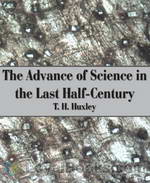 The Advance of Science in the Last Half-Century
The Advance of Science in the Last Half-Century
Thomas H. Huxley, an English biologist and essayist, was an advocate of the theory of evolution and a self-proclaimed agnostic. A talented writer, his essays helped to popularize science in the 19th century, and he is credited with the quote, “Try to learn something about everything and everything about something.” In The Advance of Science in the Last Half Century, he presents a summary of the major developments in Physics, Chemistry and Biology during the period 1839-1889 and their impact on society, within the historical context of philosophical thought and scientific inquiry going back to Aristotle... | |
By: Okakura Kakuzo (1863-1913) | |
|---|---|
 The Book of Tea
The Book of Tea
The Book of Tea was written by Okakura Kakuzo in the early 20th century. It was first published in 1906, and has since been republished many times. – In the book, Kakuzo introduces the term Teaism and how Tea has affected nearly every aspect of Japanese culture, thought, and life. The book is noted to be accessibile to Western audiences because though Kakuzo was born and raised Japanese, he was trained from a young age to speak English; and would speak it all his life, becoming proficient at communicating his thoughts in the Western Mind... | |
By: William George Jordan (1864-1928) | |
|---|---|
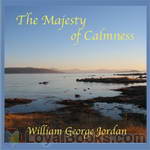 The Majesty of Calmness
The Majesty of Calmness
Change your life by changing your thoughts. The Majesty of Calmness is your guide to attracting prosperity, manifesting opportunities, and managing stress–all while discovering the values most precious to you. | |
By: John Ruskin (1819-1900) | |
|---|---|
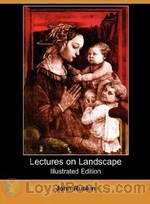 Lectures on Landscape
Lectures on Landscape
A series of lectures on landscape painting delivered at Oxford in 1871, by artist, critic, and social commentator, John Ruskin. | |
 Unto this Last: Four Essays on the First Principles of Political Economy
Unto this Last: Four Essays on the First Principles of Political Economy
John Ruskin (1819 – 1900) is best known for his work as an art critic and social critic, but is remembered as an author, poet and artist as well. Unto This Last is an important work of political economic though that influenced Gandhi, among others. (Hugh McGuire/Wikipedia) | |
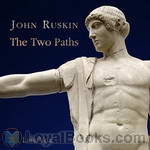 The Two Paths
The Two Paths
"The Two Paths" is a collection of five lectures delivered in 1858 and 1859 by John Ruskin on art and architecture. This is how the author himself presents the book: "The following addresses, though spoken at different times, are intentionally connected in subject; their aim being to set one or two main principles of art in simple light before the general student, and to indicate their practical bearing on modern design. The law which it has been my effort chiefly to illustrate is the dependence of all noble design, in any kind, on the sculpture or painting of Organic Form." The most famous of these, the fifth lecture, is commonly known simply as "The Work of Iron" | |
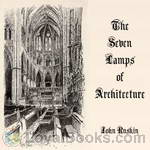 The Seven Lamps of Architecture
The Seven Lamps of Architecture
The Seven Lamps of Architecture, published in May 1849, is an extended essay written by the English art critic and theorist John Ruskin. The 'lamps' of the title are Ruskin's principles of architecture, which he later enlarged upon in the three-volume The Stones of Venice. To an extent, they codified some of the contemporary thinking behind the Gothic Revival. At the time of its publication A.W.N. Pugin and others had already advanced the ideas of the Revival and it was well under way in practice... | |
 The Stones of Venice, volume 1
The Stones of Venice, volume 1
The Stones of Venice is a three-volume treatise on Venetian art and architecture by English art historian John Ruskin, first published from 1851 to 1853. Intending to prove how the architecture in Venice exemplified the principles he discussed in his earlier work, The Seven Lamps of Architecture, Ruskin examined the city in detail, describing for example over eighty churches. He discusses architecture of Venice's Byzantine, Gothic and Renaissance periods, and provides a general history of the city as well... | |
By: John Locke (1632-1704) | |
|---|---|
 Two Treatises of Civil Government
Two Treatises of Civil Government
The Two Treatises of Civil Government is a work of political philosophy published anonymously in 1689 by John Locke. The First Treatise is an extended attack on Sir Robert Filmer’s Patriarcha, which argued for a divinely-ordained, hereditary, absolute monarchy. The more influential Second Treatise outlines a theory of civil society based on natural rights and contract theory. Locke begins by describing the “state of nature,” and goes on to explain the hypothetical rise of property and civilization, asserting that the only legitimate governments are those which have the consent of the people... | |
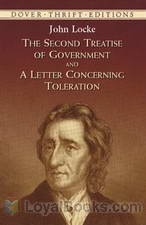 A Letter Concerning Toleration
A Letter Concerning Toleration
Letter Concerning Toleration by John Locke was originally published in 1689. Its initial publication was in Latin, though it was immediately translated into other languages. In this “letter” addressed to an anonymous “Honored Sir” (actually Locke’s close friend Philip von Limborch, who published it without Locke’s knowledge) Locke argues for a new understanding of the relationship between religion and government. One of the founders of Empiricism, Locke develops a philosophy that is contrary to the one expressed by Thomas Hobbes in Leviathan, primarily because it supports toleration for various Christian denominations... | |
By: M. B. Synge (d.1939) | |
|---|---|
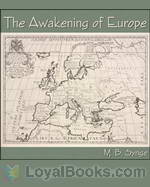 The Awakening of Europe
The Awakening of Europe
The Awakening of Europe by M. B. Synge is the third book in the series, Story of the World. Included in this history is a myriad of interesting men, women, and events that shaped Europe during the years 1520-1745. | |
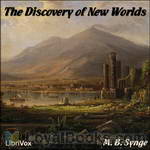 The Discovery of New Worlds
The Discovery of New Worlds
This is the second volume in the series, The Story of the World, which covers the period of history from the rise of Rome to the Conquest of Peru. Along the way, passing through the Dark Ages, going on the Crusades, and exploring the unknown world with the brave men who had the courage to travel unknown seas. Also featured is the destruction of Pompeii and the invention of the Printing Press, along with many other interesting happenings of history during this time period. | |
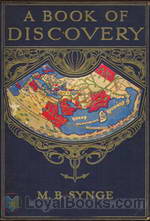 A Book of Discovery
A Book of Discovery
Telling the history of geographical discoveries, "Book of Discovery" is a record of splendid endurance, of hardships bravely borne, of silent toil, of courage and resolution unequalled in the annals of mankind, of self-sacrifice unrivalled and faithful lives laid ungrudgingly down. Of the many who went forth, the few only attained. It is of these few that this book tells. (From the Preface of the book). | |
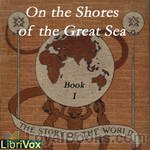 On the Shores of the Great Sea
On the Shores of the Great Sea
Book I of the "Story of the World" series. Focuses on the civilizations surrounding the Mediterranean Sea from the time of Abraham to the birth of Christ. Brief histories of the Ancient Israelites, Phoenicians, Egyptians, Scythians, Persians, Greeks, and Romans are given, concluding with the conquest of the entire Mediterranean by Rome. Important myths and legends that preceded recorded history are also related. Ages 9-18 | |
By: Epictetus (c.55-135) | |
|---|---|
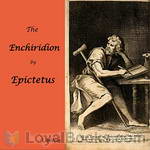 The Enchiridion
The Enchiridion
Epictetus (Greek: Επίκτητος; c.55–c.135) was a Greek Stoic philosopher. The name given by his parents, if one was given, is not known – the word epiktetos in Greek simply means “acquired.” Epictetus spent his youth as a slave in Rome to Epaphroditos, a very wealthy freedman of Nero. Even as a slave, Epictetus used his time productively, studying Stoic Philosophy under Musonius Rufus. He was eventually freed and lived a relatively hard life in ill health in Rome. So far as is known, Epictetus himself wrote nothing... | |
 The Golden Sayings of Epictetus
The Golden Sayings of Epictetus
Aphorisms from the Stoic Greek. | |
By: Myrtle Reed (1874-1911) | |
|---|---|
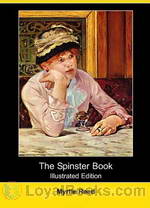 The Spinster Book
The Spinster Book
A cross between guidebook and social commentary, The Spinster Book gives clever and humorous insights on topics such as courting, handling men and women, love letters, marriage and spinsterhood. | |
By: Georg Wilhelm Friedrich Hegel (1770-1831) | |
|---|---|
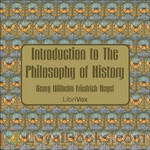 Introduction to The Philosophy of History
Introduction to The Philosophy of History
The introduction to Hegel’s lectures on the philosophy of world history is often used to introduce students to Hegel’s philosophy, in part because Hegel’s sometimes difficult style is muted in the lectures, and he discourses on accessible themes such as world events in order to explain his philosophy. Much of the work is spent defining and characterizing Geist or spirit. Geist is similar to the culture of people, and is constantly reworking itself to keep up with the changes of society, while at the same time working to produce those changes through what Hegel called the “cunning of reason”... | |
By: John H. Haaren and A.B. Poland | |
|---|---|
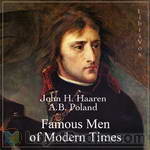 Famous Men of Modern Times
Famous Men of Modern Times
Famous Men of Modern Times is a series of biographical sketches written for the purpose of making the study of history lively and interesting by giving insight into the men who lived during this time. Summary by Laura Caldwell | |
By: Delmer Eugene Croft | |
|---|---|
 Supreme Personality
Supreme Personality
Life is self-realization. Every birth is divine. We are born anew every morning. My wish is that you may catch the gleam, be freed from limitations and enter upon your boundless possibilities. To bring you into the throne-room of your being, that you may awaken in self-realization, is why I have prepared this course of lessons. Should you give five minutes a day to them, in a year you will know the joy there is in Life, in Power, and in Service. (from the text) | |
By: Warren Hilton (1874-?) | |
|---|---|
 Initiative Psychic Energy
Initiative Psychic Energy
Learn how to accomplish your goals through increasing your mental power, avoiding energy drains, and becoming more mentally efficient. | |
By: Ludwig van Beethoven (1770-1827) | |
|---|---|
 Selected Letters of Beethoven
Selected Letters of Beethoven
A selection of Beethoven’s letters from the compilation by Dr. Ludwig Nohl and translated by Lady Grace Wallace. | |
By: Frank Lewis Dyer and Thomas Commerford Martin | |
|---|---|
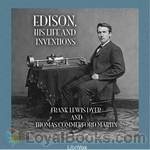 Edison, His Life and Inventions
Edison, His Life and Inventions
One of the most prolific and multi-talented geniuses the world has ever seen, Thomas Alva Edison's life is indeed an inspiration for each new generation. Today we live in a world that would not have been possible if not for several of his important inventions – the electric light bulb, the motion picture camera, electric power distribution, the phonograph, and a host of other things that we take for granted today. In fact, he still holds the world record for the maximum number of patents, numbering 1093 in all! Edison – His Life and Inventions by Frank Lewis Dyer and Thomas Commerford Martin, published in 1910 was in fact a biography commissioned by Edison himself... | |
By: George Santayana (1863-1952) | |
|---|---|
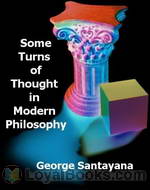 Some Turns of Thought in Modern Philosophy
Some Turns of Thought in Modern Philosophy
Before the beginning of World War II, during the time of the Modernist movement in philosophy, George Santayana wrote these five descriptive essays. He examined John Locke’s sensationalism, British Idealism, the “Theory of Relativity”, Freud’s psychology, and Julien Benda’s preachment on the relations between God and the world. [Summary written by Gary Gilberd] | |
 The Life of Reason volume 1
The Life of Reason volume 1
The Life of Reason, subtitled "the Phases of Human Progress", is a book published in five volumes from 1905 to 1906, by Spanish-born American philosopher George Santayana (1863-1952). It consists of Reason in Common Sense, Reason in Society, Reason in Religion, Reason in Art, and Reason in Science. The work is considered to be the most complete expression of Santayana's moral philosophy [...]. Santayana's philosophy is strongly influenced by the materialism of Democritus and the refined ethics of Aristotle, with a special emphasis on the natural development of ideal ends... | |
 Winds of Doctrine: Studies in Contemporary Opinion
Winds of Doctrine: Studies in Contemporary Opinion
Even before the Great War turned the world upside down, Western civilization was being revolutionized at all levels: intellectually, philosophically, artistically. Noted positivist philosopher George Santayana published this volume on the eve of the War, trying to portray the status of philosophy and theology at that moment by analyzing six significant topics: 1. the intellectual "temper" of the age 2. the clash between Modernism and Christianity 3. the new idealism of Henri Bergson 4. the new skepticism of Bertrand Russell 5. Shelley's fusion of philosophy and poetry 6. the so-called "genteel" tradition in American philosophy. | |
By: Olaudah Equiano (1745-1797) | |
|---|---|
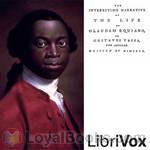 The Interesting Narrative of the Life of Olaudah Equiano, Or Gustavus Vassa, The African
The Interesting Narrative of the Life of Olaudah Equiano, Or Gustavus Vassa, The African
The Interesting Narrative of the Life of Olaudah Equiano, written in 1789, is the autobiography of Olaudah Equiano. It discusses his time spent in slavery, serving primarily on galleys, documents his attempts at becoming an independent man through his study of the Bible, and his eventual success in gaining his own freedom and in business thereafter. The book contains an interesting discussion of slavery in West Africa and illustrates how the experience differs from the dehumanising slavery of the Americas... | |
By: Henry Fielding (1707-1754) | |
|---|---|
 Journal of a Voyage to Lisbon
Journal of a Voyage to Lisbon
Sailing voyage from England to Portugal in the mid Eighteenth Century, by one of the premier humorists, satirists, novelists and playwrights of his age. It was to be his last work, as his failing health proved unable to persevere much longer after the voyage. | |
By: Thomas de Quincey (1785-1859) | |
|---|---|
 Miscellaneous Essays
Miscellaneous Essays
The Hunter Thompson of the 19th Century, de Quincey is best known for his Confessions of an English Opium Eater (an activity shared with his hero, Samuel Coleridge, much to Wordsworth’s dismay). However, de Quincey’s literary genius is best captured in his essays, and, according to Wikipedia: His immediate influence extended to Edgar Allan Poe, Fitz Hugh Ludlow and Charles Baudelaire, but even major 20th century writers such as Jorge Luis Borges admired and claimed to be partly influenced by his work. | |
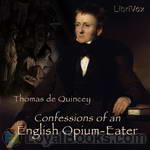 Confessions of an English Opium-Eater
Confessions of an English Opium-Eater
“Thou hast the keys of Paradise, O just, subtle, and mighty Opium!” Though apparently presenting the reader with a collage of poignant memories, temporal digressions and random anecdotes, the Confessions is a work of immense sophistication and certainly one of the most impressive and influential of all autobiographies. The work is of great appeal to the contemporary reader, displaying a nervous (postmodern?) self-awareness, a spiralling obsession with the enigmas of its own composition and significance... | |
By: Charles Spurgeon (1834-1892) | |
|---|---|
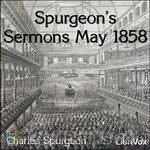 Spurgeon's Sermons May 1858
Spurgeon's Sermons May 1858
Charles Spurgeon was a popular Baptist minister in London in mid-Victorian times; his ministry was highly influential and had a significant effect on many families in London and further afield. It was difficult to find a hall large enough to accommodate the crowd who wished to hear him. At times the Royal Surrey Gardens’ Music Hall was hired to accomodate the Sunday congregation; this could seat 10,000 but large numbers were unable to gain admittance. His world-wide heritage is very much with us today through the many chuches built, missionary work begun, children’s charity founded and theological colleges established as a result of his ministry... | |
 Morning and Evening: Daily Readings
Morning and Evening: Daily Readings
Organized by week, this devotional has a morning and evening meditation for every day of the year. Although these devotions are short in length, they are filled with spiritual goodness. In just a few sentences, Spurgeon is able to convey the wisdom of Scripture with eloquence and purpose. These daily messages provide Christians with the spiritual energy they need to begin and end each day. Spurgeon weaves a verse of Scripture into each devotion, helping readers draw deeper meaning out of the selected passages... | |
By: Catharine Parr Traill (1802-1899) | |
|---|---|
 The Backwoods of Canada
The Backwoods of Canada
The writer is as earnest in recommending ladies who belong to the higher class of settlers to cultivate all the mental resources of a superior education, as she is to induce them to discard all irrational and artificial wants and mere useless pursuits. She would willingly direct their attention to the natural history and botany of this new country, in which they will find a never-failing source of amusement and instruction, at once enlightening and elevating the mind, and serving to fill up the void left by the absence of those lighter feminine accomplishments, the practice of which are necessarily superseded by imperative domestic duties... | |
By: A. Alpheus | |
|---|---|
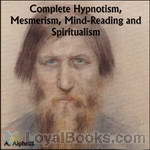 Complete Hypnotism, Mesmerism, Mind-Reading and Spiritualism
Complete Hypnotism, Mesmerism, Mind-Reading and Spiritualism
Written in 1903, just sixty years after the word ‘hypnotism’ was coined, this book explores the contemporary understanding of the nature, uses and dangers of the technique. Hypnotism has been practiced for many centuries, but it was in the mid-to-late nineteenth century that it became a particularly fashionable way to explore the human mind. Although understanding of the subject has evolved considerably over subsequent years, this book remains a fascinating insight into a technique once thought to be at the forefront of medical science. | |